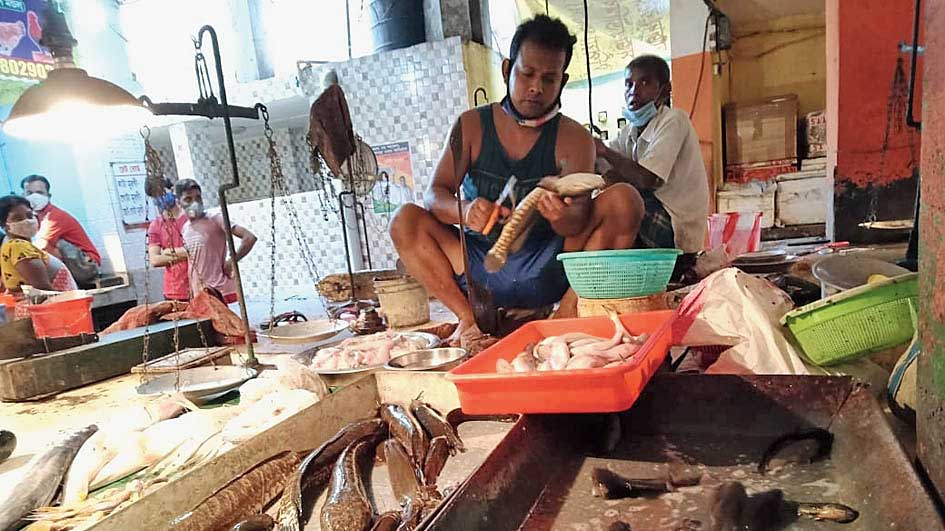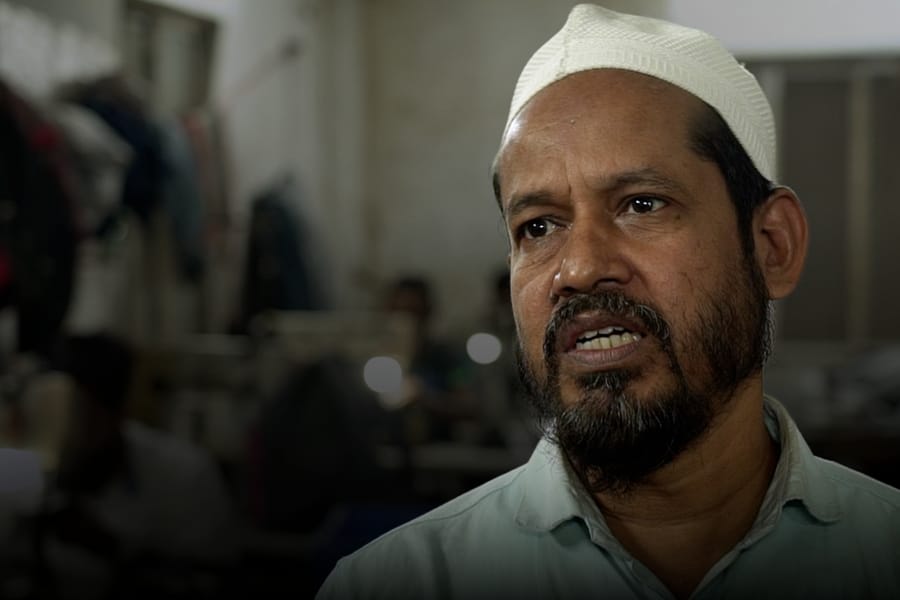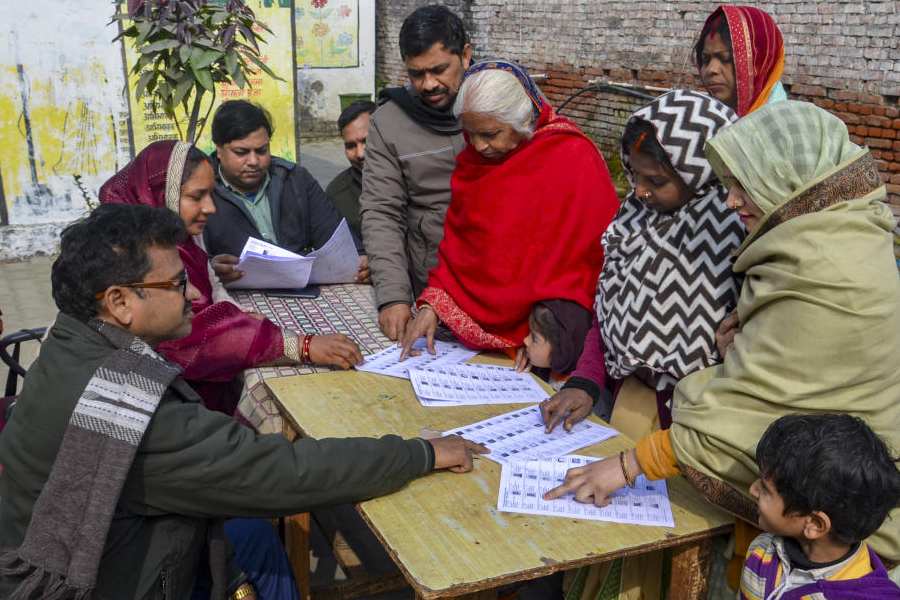The sight of floating corpses in the Ganga, coupled with lockdown-induced transportation issues, has affected the overall fish consumption in and around the township. So several fish-loving Bengalis have switched to other forms of protein till the situation in the river is brought under control.
A resident of BE Block said he has given up fish for the time being as he is both repulsed and freaked out. “The thought of the fish nibbling on or even swimming with human bodies is alarming and disgusting. Scientists are claiming coronavirus won’t survive in dead bodies but what about the surface? No one is sure and I’m not taking a chance,” said the man whose father, however, continues to eat fish twice a day. “My father eats nothing but fish and has categorically refused to stop eating it, whatever be the case. So our household is still buying fish, albeit much less.”
Similar is the case with Sanjeeb Kumar Debnath, an engineer from Lake Town whose family usually has different kinds fish for lunch four times a week. Not any more. “Ever since the news of floating corpses has been reported, we are scared the fish may be poisoned or breeding in contaminated water. So I’ve given up river fish like aar, boal and prawn, It’s only pond fish like rui, katla and charapona now,” he said.
Gita Chakraborty, a retired school teacher from Bangur Avenue, has quit fish altogether. “I’ve switched to a largely vegetarian diet along with eggs and meat. There is every chance that the fish reaching me is poisoned. An administration that has been so irresponsible in controlling Covid will be equally callous in controlling fish contamination. We can’t trust anyone; we have to fend for ourselves,” she said.
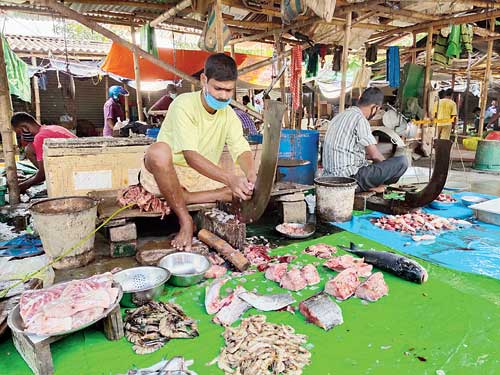
Rohu, katla and prawn on sale at the Baisakhi market. These are among the fish buyers are opting for. Debasmita Bhattacharya
Market watch
Fish from the Ganga is usually pooled in at Malda, Farakka and the stretch from Baghbazar to Serampore. The current is so strong in upstream Ganga that neither anything afloat nor the fish is ever stagnant. People in the fishery business say that if there are corpses of either humans or animals or birds floating down the river, a certain section of the fish — the carnivorous kinds — will eat that flesh. This category of fish include koi, magur, bahas, tyangra and magur.
Devasish Jana, former councillor of Ward 34 who is in the fish trade, said that 17 per cent of the fish consumed in the city is brought in from places like Andhra Pradesh, Nagpur, Bilaspur and Odisha. “Mainland fish and sea fish make for 30 per cent of Bengal’s cultured production. Earlier, a lot of river fish used to come to Bengal from Muzaffarpur, Hazipur, Moradabad, Unnao and Lucknow districts of Uttar Pradesh and Bihar. But that does not happen anymore owing to rise of fish-eating population in those states,” he said.
Biswajit Mandal is a fishmonger who lives opposite Bharatiya Vidya Bhavan and delivers fish to houses all over Salt Lake, especially Purbachal. He agrees that the consumption of fish has taken a hit. “Varieties like rohu and katla are always in demand. These are still selling because most families eat them on a regular basis. But overall fish consumption has gone down. I get my fish from Patipukur wholesale market, where maximum stock comes from out of town. Demand for river water fish has gone down because of transportation issues as well as lockdown-induced problems. Some people also feel river water fish is now contaminated due to floating corpses, but it is a just a small section,” he said.
Arup Mondal, who runs a wholesale fishery business at Patipukur, says people need not panic. “The percentage of fish coming from the Ganga is not much. Also, sea water fishing is usually shut along the Bengal coast from April 15 to July 15, which is the season of storms, cyclones and heavy monsoon. There is every chance that the fish may get poisoned along the Ganga owing to floating corpses, but people in Bengal need not panic because we don’t bring in a lot of river water fish into Bengal.”
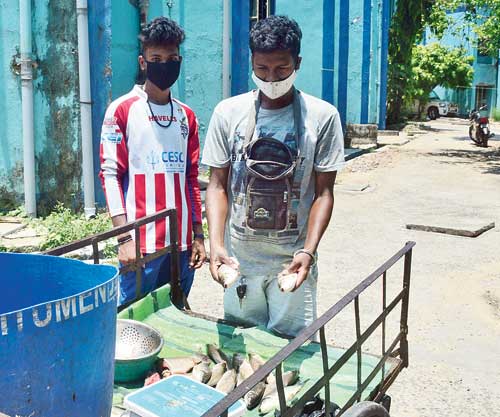
Biswajit Mandal packs Bata fish for a customer while selling door to door in Purbachal. Picture by Saradindu Chaudhury
Against the tide
Shayari Sinha Dey, a Lake Town-based teacher in a government school, has not given up on her staple despite the rumours. “I agree that water contamination is very likely under such circumstances but I don’t want to panic. Unless experts in the field tell us to give up fish, I don’t want to take a call. I am tired of being scared, I just want to see how things shape up,” she said.
Dipti Chandra, who runs an egg shop in Bangur Avenue, has quit certain varieties of fish but for different reasons. “I stopped eating cat fish a couple of weeks back, mainly as they have become very expensive in the lockdown. I’m sticking to rohu, katla and charapona,” she said.

